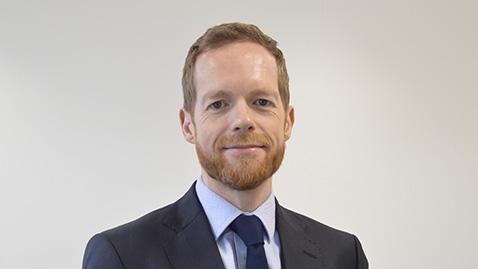Stephen Boyle and Sheila Gunn: Homelessness affects us all - action is needed

Stephen Boyle
Stephen Boyle, the Auditor General for Scotland and Sheila Gunn, member of the Accounts Commission, have called for action on the levels of homelessness in Scotland.
Having a safe, secure, affordable home is not a luxury. It’s a fundamental necessity.
A home is the foundation of our mental and physical well-being - a place to provide security, preventing multiple harms which have immediate and longer-term consequences on peoples’ lives.
Whether roofless, ‘sofa surfing’, living in temporary or other unsuitable, insecure housing, homelessness has a massive impact on anyone’s ability to live a full life. For people with caring responsibilities, the impacts are intensified still further.
Looking ahead, we, both the Accounts Commission and Auditor General, expect to undertake a joint audit focused on homelessness in 2023/2024.
Homelessness makes accessing support and other core services such as healthcare, education, training, welfare and gaining employment exceptionally difficult. It deprives people and families of access to a safe place to sleep, wash, prepare food, work or study. It robs people of a place to anchor their life and can significantly diminish health and life expectancy.
In our recent reporting we made clear that councils across Scotland and the Scottish Government are entering the most difficult budget-setting context seen for many years. Increasingly difficult choices about spending priorities will need to be made, with limited room for manoeuvre to balance ever tighter budgets.
But alongside this we all have a responsibility – as individuals, as well as those working across Scottish and local government services - to consider what kind of a society we want to live in, about how fundamental safe, secure housing is to basic human needs. Failing to meet these needs, trying to rectify the multiple harms caused by homelessness and poor housing, will always result in greater investment in other budget areas such as health.

Sheila Gunn
Scottish Government figures show there were over 35,000 homeless applications in 2021/22 in Scotland, with almost 14,000 individuals and families housed in temporary accommodation. The average time spent in that temporary accommodation is over 200 days.
Across Scotland, 130,000 households (including 60,000 children) are on waiting lists for social housing. That figure is likely to be an underestimate of the true level of need, as it doesn’t include households on lists for housing association homes (which, for example, is all the social housing in Glasgow).
Ten years ago, the Christie report set out an agenda for change, putting people at the centre of public services. It highlighted Scotland’s deepening inequalities: in wealth, education, health and opportunity. That situation is not improving. Decent, affordable housing is central to addressing this. Christie challenged us to make a shift towards prevention, helping people lead better lives. But much of the public spending on homelessness, as it is in areas such as health, continues to be focused on crisis responses. Pivoting services to focus on prevention will be key to improving outcomes and delivering more sustainable public services.
When there was the collective will and determination, homelessness was tackled quickly and effectively. As Covid-19 impacted in early 2020, radical and swift action was taken to ensure that no one was without a space to sleep. Councils acted and worked alongside the UK Government to achieve this. With a commitment to ‘build back better’ after the pandemic, addressing homelessness must be central to this, with a collective will focused on longer-term solutions to deliver suitable, sustainable housing for everyone.
Our future audit work will focus on how effectively councils and the Scottish Government are working to achieve and deliver better outcomes in these areas.
In 2022, the Scottish Government introduced temporary emergency legislation to protect tenants in private and social rented sectors through a moratorium on evictions and freezing rents to protect tenants during the cost-of-living crisis. The government recently stated that the suspension of evictions will remain in place, except in specific circumstances, while it has been agreed rents can increase. This could intensify the pressures on those at risk of homelessness. The Scottish Housing Regulator reports that rent arrears among social housing tenants are at their highest level since reporting began.
This demonstrates the importance of the Scottish Government and its partners working in collaboration to address these long-standing policy challenges.
The Scottish Government delivered on their commitment to build 50,000 affordable houses between April 2016 and March 2021 - a target met in March 2022- Opens in a new window after the delays caused by the pandemic. The Scottish Government’s pledge in their Housing to 2040 [3] strategy sets a new ambition to deliver 100,000 affordable homes by 2031/32, with at least 70 per cent of these homes available for social rent and 10 per cent in rural and island communities, with a total investment package of around £16 billion.
Alongside looking to the longer-term, including building more affordable housing, we need collective action now to prevent homelessness and to support people at risk of losing their tenancy.
Our role, as public auditors, is to look at how well councils and the Scottish Government are spending public money to reduce homelessness, including the building and delivery of more affordable homes and the strategies in place to prevent people from becoming homeless. These are key areas of future audit interest for us.







